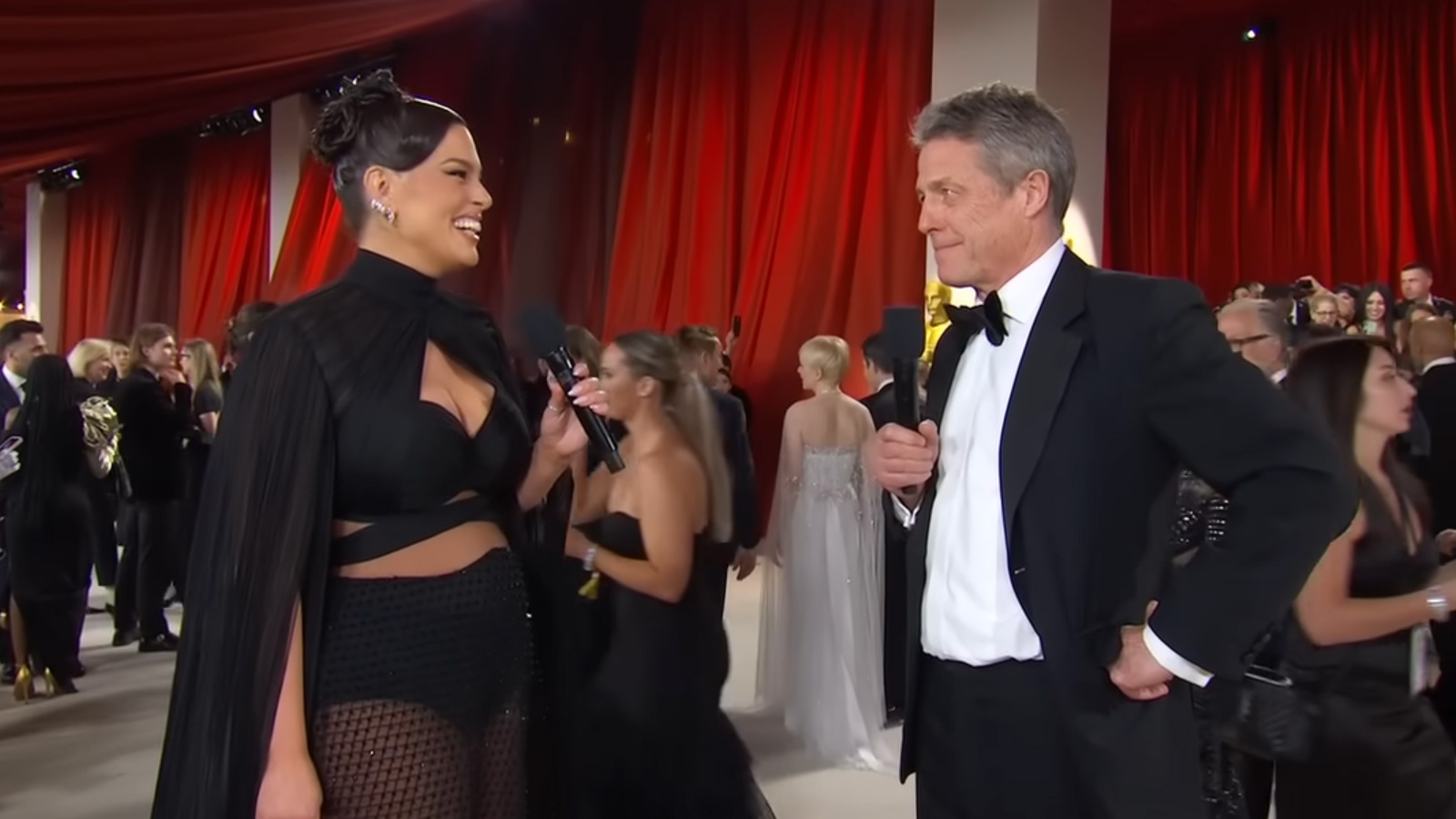There’s been a lot of handwringing today because this right-wing writer, Bethany Mandel, could not cough up an even marginally coherent definition of “woke” in response to a question from Briahna Joy Gray—though Mandel did, in the moment, correctly identify her own incoherence as a viral sensation in the making.
The true meaning of “woke,” though, was on full display at the recent Oscar broadcast, where actor Hugh Grant and interviewer Ashley Graham tried, and failed, to establish any kind of conversational connection on the not-red carpet. A strange conflict arose in social media regarding their brief encounter, which lasted barely more than a minute: Graham was mocked for her unfamiliarity with the term “Vanity Fair,” and Grant derided for his “rudeness,” though Grant wasn’t the slightest bit rude, and also, how many of the cognoscenti blasting Graham for her possible unfamiliarity with Thackeray’s 1848 novel would ever have heard of it, if Reese Witherspoon hadn’t starred in the movie?
Anyhoo. The friction arose because Ashley Graham was speaking from inside the Oscars PR machine, and Hugh Grant from outside it; Ashley Graham obeying the Man, “doing her job,” understandably, in a world where you’re expected to dutifully name the designer of your eveningwear, and root for your friends to win the prize, and tell an adorable anecdote about your first time at the Oscars; Hugh Grant, meanwhile, was blithely attempting to talk to her like a normal person, as if the Oscars didn’t even exist because do they, what even, etc.? Hugh Grant will be 63 this year and thus his general outlook, one imagines, might easily tend more toward, Did you know we’re all on this blue spinning pearl in the infinite void for such a very, very short time.
“Woke” invariably describes a refusal to abide by customs, conventions or tradition. Is that “rude,” no, not necessarily; those customs might or might not be worthy of respect, and a sense of obligation to conform might also be terrible, or good, or neutral. Ashley Graham wasn’t able to join Hugh Grant in his gentle mockery of their bizarre situation—having a meaningless professional conversation at the Oscars—and he couldn’t join her inside the bubble, and trot out the name of his tailor.
The space between Hugh Grant and Ashley Graham, between inside and outside, is what defines “woke.” The “woke” person, for good or ill, chose to operate outside the rules that others are willing to play by, maybe because they are a teacher’s pet, or they are a fascist, or clueless or just because they have bills to pay.
But what “woke” has meant since at least 1938, when Lead Belly observed the need to “stay woke,” with reference to the wrongful incarceration of the Scottsboro Boys, is nothing more complicated than,
There’s a better, more truthful way of looking at this.






